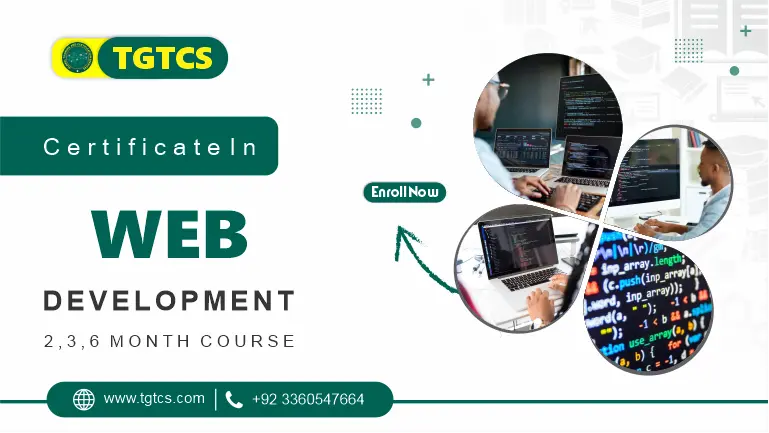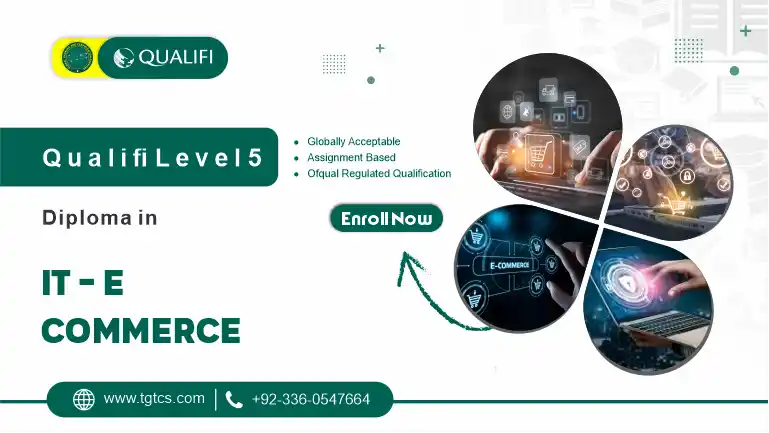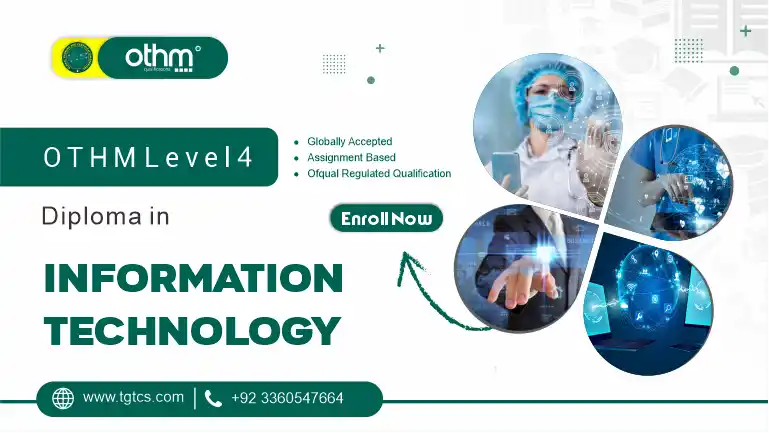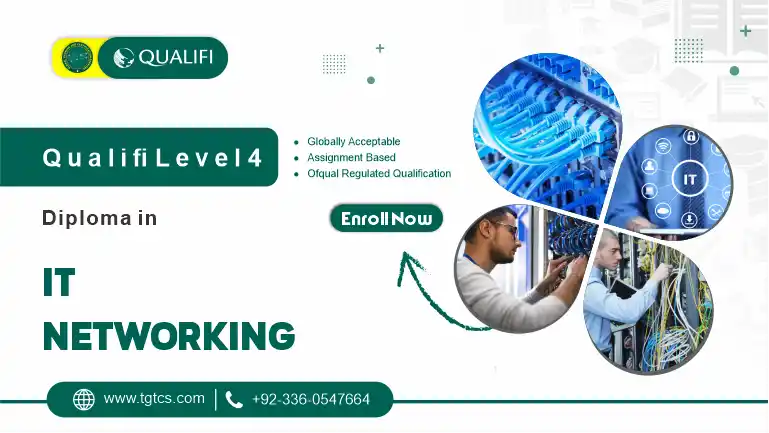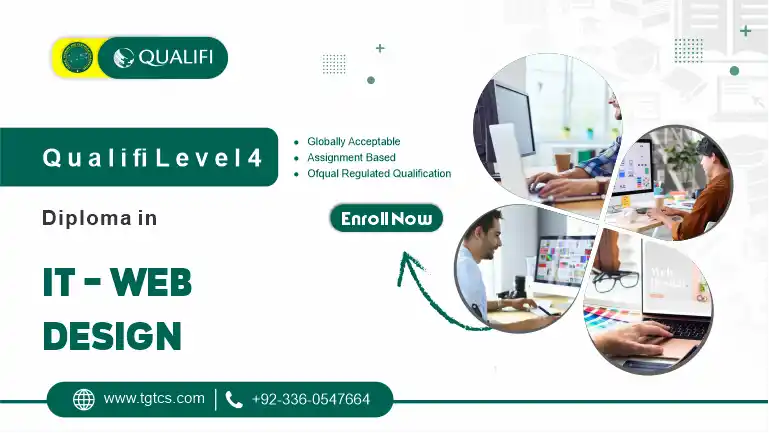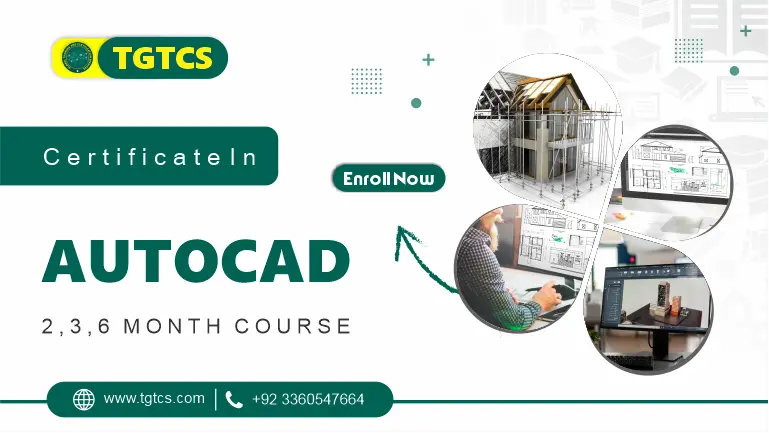Certificate in Web Development
Take your career to new heights while enhancing workplace safety. Discover the art of fostering a secure and healthy work environment.
Unlock Your Potential with Our Comprehensive Web Development Course!
Are you ready to embark on a transformative journey into the world of web development? Elevate your skills, boost your career prospects, and dive into the dynamic realm of coding with our cutting-edge Web Development Course!
Why Choose Our Web Development Course?
Comprehensive Curriculum: Master the full spectrum of web development, from HTML and CSS to JavaScript, React, and beyond. Our carefully crafted curriculum ensures you gain hands-on experience with the latest tools and technologies.
Expert Instructors: Learn from industry experts with years of experience in web development. Our passionate instructors are dedicated to your success, providing personalized guidance and real-world insights.
Hands-On Projects: Put your knowledge into action with hands-on projects that simulate real-world scenarios. Build a portfolio that showcases your skills and impresses potential employers.
Career-Ready Skills: Graduate with the confidence and skills needed to excel in the competitive world of web development. Our course prepares you for success in job interviews and equips you with in-demand skills sought by top employers.
What You’ll Learn:
- HTML & CSS Fundamentals: Lay the foundation for web development by mastering HTML for structure and CSS for styling.
- JavaScript Mastery: Dive into the world of dynamic web pages and interactive user experiences with JavaScript.
- Front-End Frameworks (e.g., React): Learn how to build responsive and modern user interfaces using popular front-end frameworks.
- Back-End Development: Explore server-side programming, databases, and server management to create robust and scalable web applications.
- Version Control with Git: Collaborate seamlessly with other developers and manage your code effectively using Git and GitHub.
Exclusive Benefits:
Certificate of Completion: Earn a recognized certificate upon successfully finishing the course, showcasing your commitment to excellence.
Networking Opportunities: Connect with like-minded individuals and industry professionals through our dedicated community forums and networking events.
Career Support: Gain access to our career services, including resume reviews, interview preparation, and job placement assistance.
Ready to revolutionize your career? Enroll in our Web Development Course today and unleash the full potential of your coding prowess! Don’t miss out on this opportunity to shape the digital future.
A “Web Development Course” is an educational program designed to teach individuals the skills and knowledge required to create and maintain websites and web applications. Web development encompasses a range of tasks, including designing the user interface, coding the functionality, and managing the overall structure of a website.
Typically offered by educational institutions, online platforms, or coding bootcamps, web development courses cater to individuals with varying levels of experience, from beginners to more advanced learners. The curriculum of such courses often covers a variety of topics, including:
- HTML (Hypertext Markup Language): The fundamental language used to structure content on the web.
- CSS (Cascading Style Sheets): A stylesheet language used for describing the presentation of a document written in HTML.
- JavaScript: A programming language that enables the creation of dynamic and interactive web pages.
- Front-end Frameworks: Such as React.js or Angular.js, which facilitate the development of user interfaces and enhance the efficiency of web development.
- Back-end Development: Involving server-side scripting, databases, and server management. Common languages include Node.js, Python, Ruby, and PHP.
- Database Management: Understanding and implementing databases to store and retrieve data efficiently.
- Version Control: Learning tools like Git for tracking changes in code and collaborating with others.
- Web Development Tools: Familiarity with tools and workflows commonly used in the industry, such as text editors, integrated development environments (IDEs), and browser developer tools.
- Responsive Design: Ensuring that websites work seamlessly across various devices and screen sizes.
- Web Security: Understanding best practices for securing websites and protecting against common vulnerabilities.
The structure of web development courses can vary, ranging from self-paced online tutorials to immersive in-person bootcamps. Some courses also offer projects and real-world applications to allow students to apply their knowledge in practical scenarios.
Upon completion of a web development course, individuals should possess the skills necessary to build functional and visually appealing websites and web applications. This knowledge is valuable for those pursuing careers as web developers, front-end or back-end developers, full-stack developers, or even entrepreneurs looking to create their own web-based projects.
Web Development Course Benefits:
- In-Demand Skills: A web development course equips you with skills that are highly sought after in today’s job market. With businesses and individuals increasingly relying on an online presence, the demand for skilled web developers is constantly growing.
- Career Opportunities: Completing a web development course opens up a wide array of career opportunities. You can pursue roles such as front-end developer, back-end developer, full-stack developer, web designer, or even specialize in areas like e-commerce development or mobile app development.
- Creativity and Innovation: Web development is not just about coding; it’s also about creating visually appealing and user-friendly websites. The course encourages creativity and innovation, allowing you to design and build interactive and dynamic web applications.
- Freelance and Entrepreneurship: Armed with web development skills, you have the option to work as a freelancer or start your own web development business. This flexibility allows you to choose your projects, work remotely, and even build your own digital products or services.
- Adaptability to Technology Trends: Web development is a field that evolves rapidly with technological advancements. A good course will keep you updated on the latest tools, frameworks, and languages, ensuring that you stay relevant and adaptable to industry trends.
- Problem-Solving Skills: Coding involves logical thinking and problem-solving. Through hands-on projects and challenges, a web development course hones your ability to analyze problems and devise effective solutions—an invaluable skill in any profession.
- Collaborative Work Environment: Web development projects often require collaboration among team members with different skill sets. The course provides opportunities to work in a collaborative environment, enhancing your teamwork and communication skills.
- Portfolio Development: A web development course provides you with the opportunity to build a strong portfolio showcasing your projects. This portfolio becomes a powerful tool when applying for jobs, internships, or freelance opportunities, demonstrating your practical skills to potential employers.
- Understanding of Web Architecture: Gain insights into the architecture of the internet and how web applications function. Understanding concepts such as client-server architecture, databases, and APIs is crucial for developing robust and scalable web solutions.
- Continuous Learning: The world of web development is dynamic, and there’s always something new to learn. A good course instills a mindset of continuous learning, encouraging you to stay curious and update your skills throughout your career.
Enrolling in a web development course not only equips you with technical skills but also fosters a mindset that is essential for success in the ever-evolving digital landscape.
Learning outcomes for a Web Development course are as follow :
Fundamental Concepts:
- HTML Mastery:
- Students will demonstrate proficiency in creating well-structured and semantic HTML documents.
- CSS Styling:
- Learners will be able to apply various CSS techniques to style and format web pages effectively.
- JavaScript Basics:
- Participants will understand the fundamentals of JavaScript and be able to use it for basic interactivity.
Front-End Development:
- Responsive Design:
- Students will be able to create responsive and mobile-friendly web pages using media queries and flexible layouts.
- Web Accessibility:
- Participants will develop an understanding of web accessibility principles and be able to implement accessible features in their projects.
- Browser Compatibility:
- Learners will ensure cross-browser compatibility and optimize websites for different web browsers.
Back-End Development:
- Server-Side Scripting:
- Students will gain proficiency in a server-side scripting language (e.g., Node.js, PHP) to handle server-side logic.
- Database Integration:
- Participants will be able to integrate and interact with databases to store and retrieve data for web applications.
- API Integration:
- Learners will understand how to connect and interact with external APIs to fetch and display data dynamically.
Development Tools and Workflow:
- Version Control:
- Students will use version control systems (e.g., Git) to track changes, collaborate, and manage code repositories.
- Code Editor Proficiency:
- Participants will demonstrate proficiency in using a code editor (e.g., Visual Studio Code) and understanding its features for efficient development.
- Debugging and Troubleshooting:
- Learners will develop skills in debugging and troubleshooting common issues in web development projects.
Project Development and Deployment:
- Web Project Development:
- Students will apply their knowledge to plan, design, and develop a complete web project from concept to implementation.
- Web Hosting and Deployment:
- Participants will deploy web applications to hosting platforms and understand the process of domain management.
Continuous Learning:
- Keeping Up with Trends:
- Learners will cultivate the habit of staying updated with the latest trends and technologies in web development.
- Problem-Solving Skills:
- Students will enhance their problem-solving skills through coding challenges and real-world project scenarios.
These learning outcomes provide a comprehensive overview of the skills and knowledge that students are expected to gain upon completing the Web Development course.
The Ideal Learner’s Guide to Web Development
Introduction: Embarking on a journey to become a proficient web developer requires more than just technical skills—it demands a strategic approach, a passion for learning, and a mindset that embraces continuous growth. The ideal learner in a web development course possesses a unique blend of curiosity, perseverance, and adaptability. Here’s a comprehensive guide for those aspiring to master the art of web development.
- Curiosity and Eagerness to Learn:
- A genuine interest in understanding how websites work and a curiosity to explore the intricacies of coding.
- Eagerness to stay updated with the latest technologies and trends in web development.
- Strong Problem-Solving Skills:
- The ability to approach challenges methodically and solve problems creatively.
- Willingness to tackle complex coding issues and persist until a solution is found.
- Solid Foundation in Basic Technologies:
- Familiarity with fundamental technologies such as HTML, CSS, and JavaScript.
- Understanding of how these technologies interact to create a seamless user experience.
- Adaptability and Openness to Change:
- Willingness to adapt to new tools, frameworks, and methodologies that may emerge in the ever-evolving field of web development.
- Openness to constructive feedback and a commitment to continuous improvement.
- Effective Time Management:
- Ability to manage time efficiently to balance learning, coding practice, and real-world applications.
- Prioritization of tasks to ensure a steady progression in understanding and implementing web development concepts.
- Collaboration and Communication Skills:
- Capability to work well in a team, communicate ideas effectively, and learn from peers.
- Understanding the importance of collaborative coding practices and version control systems.
- Portfolio Building:
- Recognition of the significance of creating a diverse portfolio showcasing practical projects.
- Willingness to experiment and implement personal projects to reinforce learning.
- Networking and Community Engagement:
- Active participation in online forums, meetups, and web development communities.
- Building a network of peers, mentors, and industry professionals to share knowledge and gain insights.
- Continuous Learning Mindset:
- Embracing a lifelong learning mindset and staying curious about emerging technologies.
- Seeking out additional resources, tutorials, and courses to deepen knowledge.
- Ethical and Responsible Coding Practices:
- Understanding the ethical implications of web development and coding responsibly.
- Adhering to best practices in coding to create secure, accessible, and user-friendly websites.
In conclusion, the ideal learner in a web development course is someone who not only possesses technical skills but also embodies a holistic approach to learning. A combination of curiosity, problem-solving skills, adaptability, effective time management, collaboration, and a commitment to continuous learning sets the foundation for a successful journey in web development.
Mandatory Unit
- Introduction to Web Development
- Front-End Development
- JavaScript and Front-End Frameworks
- Back-End Development
- Full-Stack Development
- Version Control and Collaboration
- Web Development Tools and Best Practices
Course Overview
Duration
2 to 6 Months
